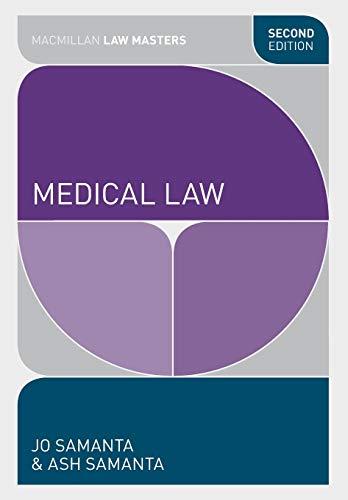Question
The plaintiff, Askren, was the owner of a two-acre parcel of land in Indianapolis. He made a contract with Cardinal Industries, a hotel chain, to
The plaintiff, Askren, was the owner of a two-acre parcel of land in Indianapolis. He made a contract with Cardinal Industries, a hotel chain, to sell the parcel to Cardinal for $250,000. Half of the purchase price was to be paid in cash to Askren at the closing and the other half was to be paid in equal installments, together with 9% interest per year, on the first and second anniversaries of the closing. The agreement was on a printed form, but a clause had been inserted stating that Askren's "security [for payment of the balance of the purchase price is] to be a Cardinal . . . promissory note." At the closing, Askren received $125,000 in cash plus a promissory note, the terms of which were identical to those specified in the agreement of sale. Cardinal borrowed a considerable sum of money to build a hotel on the parcel it had bought. The loan was secured by a mortgage on the real estate and its improvements. The loan and mortgage were later assigned to the principal defendant in this case, Third Savings and Loan Company. Cardinal went broke and failed to make either of the installment payments that it owed Askren. Does Askren have a vendor's lien on the parcel that would give him the right to bring a lawsuit to foreclose on the land? Explain. See Askren v. 21st St. Inn, 988 F.2d 38 (7th Cir. 1993).
Step by Step Solution
There are 3 Steps involved in it
Step: 1

Get Instant Access to Expert-Tailored Solutions
See step-by-step solutions with expert insights and AI powered tools for academic success
Step: 2

Step: 3

Ace Your Homework with AI
Get the answers you need in no time with our AI-driven, step-by-step assistance
Get Started


